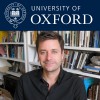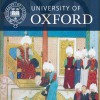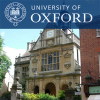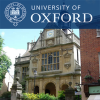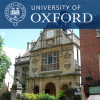Faculty of History

Most of the experience of humanity is contained in the past. Medieval and modern history has been studied at Oxford for longer than at almost any other university: a Regius Professor of Modern History was first appointed in 1724, and undergraduate examinations began in 1850.
Today the University is one of the world's most encompassing centres for the study of history. The faculty has about a hundred permanent teaching staff, nearly twelve hundred undergraduates, and almost five hundred graduate students attracted from many countries. Historians also abound in other departments. At their service is the Bodleian library and its ancillaries, which count among the greatest of research collections.
They work and live in forty-five college communities, in buildings ranging from honey-coloured medieval quads, to the most controversial of post-modernist architecture, all set within the lively, thriving, and beautiful city of Oxford.
Series associated with Faculty of History
| # | Episode Title | Description | People | Date | |
|---|---|---|---|---|---|
| 124 | Nils Chr. Stenseth And Barbara Bramanti On Evolutionary And Ecological Ends Of Epidemics | A discussion on how evolutionary biology and biological anthropology help understand the end of epidemics, particularly plague. | Nils Chr. Stenseth, Barbara Bramanti, Erica Charters | 17 May 2022 | |
| 123 | Clark Larsen and Fabian Crespo on Biology, Archaeology, and Multi-disciplinary Ends | A discussion on why multi-disciplinary approaches that combine social and biological research are helpful in understanding how epidemics end. | Clark Larsen, Fabian Crespo, Erica Charters | 17 May 2022 | |
| 122 | Cristiana Bastos and the Human End of Epidemics | Professor Cristiana Bastos (Lisbon) and Professor Erica Charters discuss how anthropology and ethnology measure the end of epidemics, including HIV/AIDS, and the difference between illness and disease. | Cristiana Bastos, Erica Charters | 17 May 2022 | |
| 121 | Creative Commons | Christl Donnelly and the Statistical End of Epidemics | Professor Christl Donnelly (Oxford and Imperial) and Dr Erica Charters discuss how statistical and mathematical epidemiology measure the end of epidemics, including BSE, Ebola, influenza, and Covid-19. | Christl Donnelly, Erica Charters | 15 Mar 2022 |
| 120 | Creative Commons | Carolyn Eastman on Yellow Fever in New York | Dr Carolyn Eastman (VCU) and Dr Erica Charters discuss how epidemics of yellow fever ended in 1790s New York, and the multiple ends of an epidemic for different parts of a society. | Carolyn Eastman, Erica Charters | 15 Mar 2022 |
| 119 | Virginia Berridge and the Political End of Epidemics | Professor Virginia Berridge (LSHTM) and Dr Erica Charters discuss swine flu, HIV/AIDS, and the history of health policy as ways to define the political end of an epidemic. | Erica Charters, Virginia Berridge | 08 Oct 2021 | |
| 118 | Dora Vargha and Arthur Rose on Epidemics, Expectations, and Ends | Kristin Heitman talks with Dora Vargha (Exeter) and Arthur Rose (Exeter) about the nature and power of narrative in forming both our expectations about epidemics and the ways that we decide when and how they have ended. | Kristin Heitman, Dora Vargha, Arthur Rose | 08 Oct 2021 | |
| 117 | Paul Kelton and Smallpox among American Indigenous Populations | Professor Paul Kelton (Stony Brook) and Dr Erica Charters discuss the role of smallpox in American indigenous history and culture and how smallpox finally ended. | Erica Charters, Paul Kelton | 08 Oct 2021 | |
| 116 | Monica H. Green and Nükhet Varlık on Plague Pandemics | Dr Monica H. Green (Independent Historian), Dr Nükhet Varlık (Rutgers), and Dr Erica Charters discuss how global history and the historicist sciences have shaped our understanding of plague pandemics. | Erica Charters, Monica H Green, Nükhet Varlık | 08 Oct 2021 | |
| 115 | Alberto Giubilini and Pandemic Ethics | Dr. Alberto Giubilini (Oxford) and Dr. Kristin Heitman discuss ethical issues raised in efforts to balance individual freedoms and social measures to control the spread of disease. | Kristin Heitman, Alberto Giubilini | 08 Oct 2021 | |
| 114 | Margaret Pelling and the History of Cholera in England | Dr Margaret Pelling (Oxford) and Dr Erica Charters discuss how historians understand disease and the myths about the end of cholera in nineteenth-century England. | Erica Charters, Margaret Pelling | 08 Oct 2021 | |
| 113 | Simukai Chigudu and the Political Life of Epidemics | Dr Simukai Chigudu (Oxford) and Dr Erica Charters discuss the Zimbabwe cholera epidemic and the politics of epidemics. | Erica Charters, Simukai Chigudu | 08 Oct 2021 | |
| 112 | Lorenz Von Seidlein and Epidemiology | Dr Lorenz Von Seidlen (Oxford) and Dr Erica Charters discuss epidemiological research into cholera and global programmes for cholera elimination. | Erica Charters, Lorenz von Seidlein | 08 Oct 2021 | |
| 111 | How Epidemics End: Introduction | Dr Erica Charters (Oxford) and Dr Kristin Heitman (Independent Historian) discuss their research into the conclusion of epidemics. | Erica Charters, Kristin Heitman | 08 Oct 2021 | |
| 110 | Histories of Emergence | Ravinder Kaur (Associate Professor of Modern South Asian Studies, Copenhagen) gives a lecture on history and public policy. | Ravinder Kaur | 29 Sep 2019 | |
| 109 | Wrap up and reflection part 2 | Patricia Clavin (Professor of International History, Oxford) gives a lecture on history and public policy. | Patricia Clavin | 29 Sep 2019 | |
| 108 | Wrap up reflection part 1 | Jeremy Adelman (Henry Charles Lea Professor of History, Princeton) gives a lecture on history and public policy. | Jeremy Adelman | 29 Sep 2019 | |
| 107 | Strange Legacies of Divergence: The Chinese Gold Mining Diaspora 1850-1910 | Mae Ngai (Lung Family Professor of Asian American Studies and Professor of History, Columbia) gives a lecture on ‘Strange Legacies of Divergence: The Chinese Gold Mining Diaspora 1850-1910’. | Mae Ngai | 29 Sep 2019 | |
| 106 | Divisions of Labour: the Household and the Economy | Peter Hill (Northumbria) gives a lecture on ‘Divisions of Labour: the Household and the Economy’. | Peter Hill | 29 Sep 2019 | |
| 105 | Household, Wage Labour and Capitalist Transformations in 20th Century Africa | Andreas Eckert (Professor of African History, Humboldt-University Berlin) gives a lecture on ‘Household, Wage Labour and Capitalist Transformations in 20th Century Africa’. | Andreas Eckert | 29 Sep 2019 | |
| 104 | China and the West: Many Great Divergences | Joel Mokyr (Robert H. Strotz Professor of Arts and Sciences, Northwestern) gives a lecture on ‘China and the West: Many Great Divergences’. | Joel Mokyr | 29 Sep 2019 | |
| 103 | Silk and Innovation in Pre-modern China and Europe | Dagmar Schafer (Director, Max Planck Institute) and Giorgio Riello (Professor of Early Modern Global History, EUI) give a lecture on ‘Silk and Innovation in Pre-modern China and Europe’. | Dagmar Schafer, Giorgio Riello | 29 Sep 2019 | |
| 102 | Cosmographical Foundations for the Promotion of Embryo Sciences and Proto- technologies in Pre-industrial Europe and Late Imperial China | Patrick O’Brien (Professor of Economic History in the Department of Economic History, LSE) gives a lecture on ‘Cosmographical Foundations for the Promotion of Embryo Sciences and Proto- technologies in Pre-industrial Europe and Late Imperial China’. | Patrick O’Brien | 29 Sep 2019 | |
| 101 | The Great Intellectual Divergence: Alexander Hamilton and the Global Origins of Environmental Investmentality | Eli Cook (Assistant Professor of American History, Haifa) gives a lecture on ‘The Great Intellectual Divergence: Alexander Hamilton and the Global Origins of Environmental Investmentality’. | Eli Cook | 28 Sep 2019 | |
| 100 | The Great Acceleration in Asia: Beyond 'Coal and North America' | Kaoru Sugihara (Specially Appointed Professor at the Research Institute for Humanities and Nature, Kyoto) gives a lecture on ‘The Great Acceleration in Asia: Beyond 'Coal and North America'’. | Kaoru Sugihara | 28 Sep 2019 | |
| 99 | Asia and the Great Divergence | Bishnu Gupta (Professor of Economics, Warwick) gives a lecture on ‘Asia and the Great Divergence’. | Bishnu Gupta | 28 Sep 2019 | |
| 98 | Water and the Economic History of India | Tirthankar Roy (Professor in Economic History, Department of Economic History, LSE) gives a lecture on ‘Water and the Economic History of India’. | Tirthankar Roy | 28 Sep 2019 | |
| 97 | Industry in the Global South, 1840s-1940s: Unfinished Business | William Clarence-Smith (Emeritus Professor of History, SOAS) gives a lecture on ‘Industry in the Global South, 1840s-1940s: Unfinished Business’. | William Clarence-Smith | 28 Sep 2019 | |
| 96 | Did the Little Divergence within Europe and America contribute to the Great Divergence? | Leandro Prados de la Escosura (Professor of Economic History, Carlos III University, Madrid) gives a lecture on ‘Did the Little Divergence within Europe and America contribute to the Great Divergence?’ | Leandro Prados de la Escosura | 28 Sep 2019 | |
| 95 | The Limits of Reciprocal Comparisons: Money and Trade Finance in the Early Modern Period | Alejandra Irigoin (Associate Professor in the Department of Economic History, LSE) gives a lecture on ‘The Limits of Reciprocal Comparisons: Money and The Early Modern Period’. | Alejandra Irigoin | 28 Sep 2019 | |
| 94 | The World Historical in China’s Twentieth Century: Perspectives on Modernity, Globalization and Globality | Rebecca Karl (Professor of History, NYU) gives a lecture on ‘The World Historical in China’s Twentieth Century: Perspectives on Modernity, Globalization and Globality’. | Rebecca Karl | 28 Sep 2019 | |
| 93 | The Spaces In Between: What is Global about the History of Capitalism? | Andrew Edwards (Career Development Fellow for the Global History of Capitalism project, Oxford) gives a lecture on ‘The Spaces in Between: What is Global about the History of Capitalism?’ | Andrew Edwards | 28 Sep 2019 | |
| 92 | Creative Commons | Oxford Goettingen conversation on Brexit | A conversation on Brexit between scholars of the Studienstiftung des Deutschen Volkes from the Georg-August-University Goettingen in Germany and DPhil students from the University of Oxford. | Talip Alkhayer, Maria Mironova, David Nguyen, Arnulf Quadt | 22 Feb 2019 |
| 91 | Creative Commons | The Polish Italian Royal Wedding of 1518: Dynasty, Memory & Language | Natalia Nowakowska (Tutor and Fellow in History, Somerville College and Principal Investigator 'The Jagiellonians Project') gives a talk for the History Faculty. | Natalia Nowakowska | 16 May 2018 |
| 90 | Creative Commons | Trade - Merchants' books of Venice and Florence | Dr Irene Ceccherini (Lyell-Bodleian Research Fellow in Manuscript Studies, Bodleian Library, Dilts Research Fellow in Palaeography, Lincoln College, University of Oxford) gives a talk for the Seminar in the History of the Book on 9th February 2017. | Irene Ceccherini | 16 Feb 2018 |
| 89 | Early Modern Publishing Policies - Andreas Frisius of Amsterdam and the search for a niche market, 1664-75 | Professor Ian Maclean (All Souls College), gives the third seminar in the History of the Book series, looking at the early modern period publishing policies in Europe on February 2nd, 2018. | Ian Maclean | 06 Feb 2018 | |
| 88 | Arabic - Scrolls into codices: Jilyani's picture-poems for Saladin | Professor Julia Bray (Laudian Professor of Arabic, University of Oxford) gives a talk for the new series for the Centre for the Study of the Book. | Julia Bray | 29 Jan 2018 | |
| 87 | Numismatics - Coins, Money and Prices in Renaissance Italy | Dr Alan Stahl (Curator of Numismatics, Princeton University) gives a talk in the new Centre for the Study of the Book Seminar series. | Alan Stahl | 29 Jan 2018 | |
| 86 | Creative Commons | The Materiality of the Divine: Aniconism, Iconoclasm, Iconography | Professor Salvatore Settis, an archaeologist and art historian, presents a special lecture on the The Materiality of the Divine. | Salvatore Settis | 23 Nov 2017 |
| 85 | Creative Commons | Music and Morale in the British Army, 1914-1918 | Dr Emma Hanna (University of Kent) gives a talk for the Globalising and Localising the Great War seminar series. | Emma Hanna | 12 Sep 2017 |
| 84 | Creative Commons | From Bandage Wallahs to Knights of the Red Cross: The Men of the Royal Army Medical Corps in the First World War | Dr Jessica Meyer (Leeds) gives a talk for the Globalising and Localising the Great War seminar series. | Jessica Meyer | 12 Sep 2017 |
| 83 | Creative Commons | Ego-Documents and Official History: Crown Prince Rupprecht of Bavaria's Diary and the Battle for Memory, 1914-39 | Dr Jonathan Boff (University of Birmingham) gives a talk for the Globalising and Localising the Great War seminar series. | Jonathan Boff | 12 Sep 2017 |
| 82 | Creative Commons | The Fortress: A Case Study of Total War in the East, 1914-15 | Professor Alexander Watson (Goldsmith's University) gives a talk for the Globalising and Localising the Great War seminar series. | Alexander Watson | 12 Sep 2017 |
| 81 | Creative Commons | Enmity or empathy? Jacques Rivière's L'Allemand | Dr Arabella Hobbs (University of Pennsylvania) gives a talk for the Globalising and Localising the Great War seminar series. | Arabella Hobbs | 12 Sep 2017 |
| 80 | Creative Commons | Kde domov muj and Wacht am Rhein: Singing Loyalty and Disloyalty in Habsburg Bohemia during the First World War | Dr Tamara Scheer (Ludwig Boltzmann-Institute for Historical Social Science/Institute for East European History, University of Vienna) gives a talk for the Globalising and Localising the Great War seminar series. | Tamara Scheer | 12 Sep 2017 |
| 79 | Creative Commons | Rescuing Maritime Strategy from the Continental Commitment: Julian Corbett's analysis of Gallipoli and Jutland in the Official History of Naval Operations | Professor Andrew Lambert (King’s College London), gives a talk for the Globalising and Localising the Great War seminar series. | Andrew Lambert | 12 Sep 2017 |
| 78 | Creative Commons | Scholarly identities in war and peace: the Paris Peace Conference and the mobilization of intellect | Dr Tomás Irish (Swansea University), gives a talk for the Globalising and Localising the Great War seminar series. | Tomás Irish | 12 Sep 2017 |
| 77 | Creative Commons | Victorious in name only: The Portuguese Republic and its empire at war, 1916-1918 | Professor Filipe Ribeiro de Meneses (Maynooth University), gives a talk for the Globalising and Localising the Great War seminar series. | Filipe Ribeiro de Meneses | 12 Sep 2017 |
| 76 | Creative Commons | Tabriz under two rival empires: Ottomans and Russians during the Great War | Fatemeh Masjedi (Zentrum Moderner Orient) gives a talk for the Globalising and Localising the Great War seminar series. | Fatemeh Masjedi | 12 Sep 2017 |
| 75 | Creative Commons | Art and Diplomacy: Peter Coeke Van Aelst's Journey Constantinople | Talitha Schepers discusses the images that Pieter Coecke van Aelst produced of the court of Suleiman I and their links to diplomacy. | Talitha Schepers | 07 Apr 2017 |
| 74 | Creative Commons | The Benefits of Permanent Diplomacy: Two Foreign Attempts to Influence Ottoman-Spanish Relations in the Second half of the 16th Century | Aneliya Stoyanova discusses dynastic diplomacy at the Ottoman court by analysing the co-operation between the Spanish and Austrian branches of the Habsburg dynasty. | Aneliya Stoyanova | 07 Apr 2017 |
| 73 | Creative Commons | Beyond the Topkapi Palace: Space, Status and Commensurability in the Venetian Diplomatic Experience | Maxwell Hudson discusses how diplomacy at the Ottoman court was marked by ceremonies across the city and in everyday interactions between ambassadors and Ottoman officials. | Maxwell Hudson | 07 Apr 2017 |
| 72 | Creative Commons | Diplomacy at Constantinople in Comparative Perspective | Using diplomatic reports, this talk discusses the cultural relativism at play when diplomats moved between the Ottoman court and other Islamic courts in India and north Africa. | Tracey Sowerby | 07 Apr 2017 |
| 71 | Creative Commons | European Ambassadors and Non-European Embassies in Constantinople | Discusses the extent to which European diplomats at the Ottoman court interacted with and learned about embassies from beyond Europe. | Tracey Sowerby | 07 Apr 2017 |
| 70 | Creative Commons | Cultures of Diplomacy at the Ottoman Court: An Introduction | Discusses recent developments in how we think about early modern diplomatic history and why we should look at all diplomacy taking place in a particular court. | Tracey Sowerby | 07 Apr 2017 |
| 69 | Nicholas Crouch's seventeenth-century books | Professor Adam Smyth talks to cataloguer Lucy Kelsall and book conservator Nikki Tomkins about the seventeenth-century library of Nicholas Crouch, now in Balliol College, and how to deal with fragile books. | Adam Smyth, Lucy Kelsall, Nikki Tomkins | 13 Mar 2017 | |
| 68 | 'The Marrow of the Tragedy is Concentrated in the Hospitals': Negotiating Trauma and Resilience in the Narratives of Medical Personnel in the Great War | The closing keynote by Dr Jane Potter illuminates how medics and nurses charged with treating the war wounded responded to and processed their experiences, analysing the stories these healers left behind and the silent spaces within them. | Jane Potter | 21 Oct 2016 | |
| 67 | Public or Private? Personal Correspondence during the Great War | In the first keynote of the conference, Professor John Horne (Trinity College Dublin, University of Oxford) explores the convergence of the public and private spheres during the Great War through the practice of letter-writing. | John Horne | 21 Oct 2016 | |
| 66 | Creative Commons | Kings and peoples | This lecture argues that engagement in war vitally shaped the relationship of Henry VIII's subjects with the king and with his immediate successors. | Steven Gunn | 12 Oct 2016 |
| 65 | Creative Commons | Killing and dying | This lecture asks what weapons people owned in Henry VIII's England and whether they knew how to use them, some of its evidence drawn from coroners' inquests into accidents with bows, guns and swords. | Steven Gunn | 12 Oct 2016 |
| 64 | Creative Commons | Trade and tillage | This lecture examines war and the economy in Henry VIII's England: heavy taxation and disrupted trade threatened recession. | Steven Gunn | 12 Oct 2016 |
| 63 | Creative Commons | Noblemen and gentlemen | This lecture explores how military service related to the social power and self-image of lords and gentlemen in Henry VIII's England. | Steven Gunn | 12 Oct 2016 |
| 62 | Creative Commons | Towns and villages | This lecture uses the records of hundreds of parishes and boroughs to see how communities coped with the pressures of war in Henry VIII's England. | Steven Gunn | 12 Oct 2016 |
| 61 | Creative Commons | Wars and Rumours of Wars | This lecture introduces the series and asks how many people took part in war in Henry VIII's England and how far those not directly involved were aware of what was happening. | Steven Gunn | 12 Oct 2016 |
| 60 | Creative Commons | Lecture 4: Spain and the World (1976-1992) | Spain on the international stage. | Marina Perez de Arcos | 16 Dec 2015 |
| 59 | Creative Commons | Lecture 3: Institutions of Democracy: King, President, Parliament, and Autonomous Communities | Democratic institution building. | Marina Perez de Arcos | 16 Dec 2015 |
| 58 | Creative Commons | Lecture 2: The Spanish Transition (1975-1978) | Spain's transition from dictatorship to democracy in the 1970s. | Marina Perez de Arcos | 16 Dec 2015 |
| 57 | Creative Commons | Lecture 1: Development and Dissent in Franco's Spain (1959-1975) | Economic development and political dissent in Franco's Spain. | Marina Perez de Arcos | 16 Dec 2015 |
| 56 | Graham Greene and Josephine Reid | Adam Smyth talks to Balliol College, Oxford archivist Anna Sander about an exciting new archive of letters relating to Graham Greene and his secretary, Josephine Reid. | Adam Smyth, Anna Sander | 13 May 2015 | |
| 55 | Creative Commons | Hand-press printing | A demonstration of and discussion about hand-press printing with the Bodleian's Dr Paul Nash. | Paul Nash, Adam Smyth | 25 Sep 2014 |
| 54 | Beyond the Academy: Applying Medical History to Health Policy | Fifth and final talk given at the Half Day Workshop for Post-Graduate and Early Career Historians of Medicine | Virginia Berridge | 14 Jul 2014 | |
| 53 | Getting Published | Fourth talk given at the Half Day Workshop for Post-Graduate and Early Career Historians of Medicine | Bill Luckin, Keir Waddington | 14 Jul 2014 | |
| 52 | Getting your Research Noticed: Public Engagement and History of Medicine | Third talk given at the Half Day Workshop for Post-Graduate and Early Career Historians of Medicine. | Lindsay Fitzharris | 14 Jul 2014 | |
| 51 | Early Career Experiences in History of Medicine | First talk given at the Half Day Workshop for Post-Graduate and Early Career Historians of Medicine | Matt Smith, Erica Charters | 14 Jul 2014 | |
| 50 | Creative Commons | Scribal correction and literary craft: English manuscripts 1375-1510 | Adam Smyth talks to Professor Daniel Wakelin about his new book on cultures of correction in later medieval manuscripts. | Daniel Wakelin, Adam Smyth | 08 Jul 2014 |
| 49 | Creative Commons | 'Almost Identical': Copying Books in England, 1600-1900 | Henry Woudhuysen joins Adam Smyth to discuss the history of facsimiles. | Henry Woudhuysen, Adam Smyth | 19 Jun 2014 |
| 48 | Creative Commons | The History of Oxford University Press | Adam Smyth is joined by Professor Ian Gadd to discuss his just-published collection on the history of OUP. | Adam Smyth, Ian Gadd | 17 Mar 2014 |
| 47 | Creative Commons | Bibliography in Bits | Adam Smyth talks to Professor Will Noel about the potentials of digital technology for the study of manuscripts. | Will Noel, Adam Smyth | 23 Feb 2014 |
| 46 | Creative Commons | Early modern plays in bits and pieces | Professor Tiffany Stern joins Dr Adam Smyth to discuss her current research on the materiality of the early modern play text. What happens to our thinking about plays when prologues, epilogues and songs become mobile pieces, detached from the whole? | Tiffany Stern, Adam Smyth | 03 Feb 2014 |
| 45 | Creative Commons | 1968 Then and Now | Professor Robert Gildea, Lecturer in History in Oxford, gives the Eighth Oxford Historians' Alumni Lecture on his research on political activists in Europe in the 1960s and their experiences during this time. | Robert Gildea | 17 Jun 2013 |
| 44 | Creative Commons | Two opposed catholic nationalisms: Ukrainian Galicians in the Second Polish Republic (1923-1939) | Dr Alessandro Milani (EHESS, Paris) gives a talk for the Cantemir Institute East and East-Central Europe seminar series. | Alessandro Milani | 13 Mar 2013 |
| 43 | Creative Commons | Family systems in historic Poland-Lithuania: Demographic perspectives on civilisational divide in Eastern Europe | Mikolaj Szoltysek (Max Planck Institute for Demographic Research, Rostock) gives a talk for the Cantemir Institute on 12th February 2013. | Mikolaj Szoltysek | 06 Mar 2013 |
| 42 | Creative Commons | Encountering and Appropriating Cityscapes: Lviv and Wroclaw after 1944/45 | Sofia Dyak (Center for Urban History, Lviv) gives a talk for the Cantemir Institute. | Sofia Dyak | 06 Mar 2013 |
| 41 | Creative Commons | Abbasid Culture and the Universal History of Freethinking | Professor Al-Azmeh, Professor in the School of Historical and Interdisciplinary Studies, Central European University, Budapest, gives a talk for the Cantemir Institute. | Aziz Al-Azmeh | 06 Mar 2013 |
| 40 | Creative Commons | Utopia and Terror: How interdisciplinary methodologies can help us understand violent societies. The example of Croatian Ustasha regime | Part of the Cantemir Institute seminar series. Rory Yeomans, senior research analyst at the Ministry of Justice, gives a talk on how interdisciplinary methodologies help us understand violent societies. | Rory Yeomans | 12 Feb 2013 |
| 39 | Creative Commons | Bygone Glories and Frivolous Pleasures: The Rococo Revival and National Identity in Austrian and Hungarian Art, 1840-1860 | Part of the East and Est-Central Europe Seminar series. Dr Nóra Veszprémi (Cantemir Fellow, Budapest) gives a talk on art and identity in Austria and Hungary in the mid 19th Century. | Nóra Veszprémi | 24 Jan 2013 |
| 38 | Creative Commons | Majorities and Minorities in Interwar Timişoara: Between Fictive and Ethnicity and Ideal Nation | Professor Victor Neumann (West University of Timisoara) delivers a lecture as part of the East and East-Central Europe Seminar Series at the Cantemir Institute. | Victor Neumann | 19 Oct 2012 |
| 37 | Empire and Globalisation: A Cultural Economy of the British World, 1850 to 1914 - Oxford Transnational and Global History Seminar | Andrew Thompson, Prfoessor of Modern History, University of Exeter, gives a talk for the Oxford Transnational and Global History Seminar series. | Andrew Thompson | 09 Jul 2012 | |
| 36 | Creative Commons | Contested Spaces in a Global City: The Changing Religious Landscape of Multicultural London - Oxford Transnational and Global History Seminar | Professor John Eade, Roehampton University, gives a talk for the Oxford Transnational and Global History Seminar. | John Eade | 09 Jul 2012 |
| 35 | Creative Commons | Marxism and the Kemalist 'Sonderweg' (through the eyes of the Turkish Communist poet Nazim Hikmet) | Professor Halil Berktay delivers the final lecture in the Trinity term East and East Central Europe Seminar Series. | Halil Berktay | 28 Jun 2012 |
| 34 | Creative Commons | Transformational Leap as the basic Metaphor of Russian Sonderweg Theories | Professor Andrei Zorin presents the third East and East Central Europe seminar lecture for the Cantemir Institute on Thursday 7 June. | Andrei Zorin | 28 Jun 2012 |
| 33 | Modernist Writing and Modernist Events: Fictions of Holocaust | Often described as one of the most important historical theorists of our times, Hayden White discusses the ethical and aesthetic implications for discourses dealing with the Holocaust, genocide and industrialized death. | Hayden White | 27 Jun 2012 | |
| 32 | Creative Commons | Institutional hypocrisy: the Imperial Diet in the 18th century - a German Sonderweg? | Professor Barbara Stollberg-Rilinger (University of Münster) delivers a lecture as part of the "East and East-Central Europe: Special Paths (Sonderwege) in European Perspective" seminar series. | Barbara Stollberg-Rilinger | 25 May 2012 |
| 31 | Creative Commons | The Irish Soldier in India, 1857-1922: The Formation and Negotiation of Stereotypes and Identities - Oxford Transnational and Global History Seminar | Alexander Bubb, DPhil Candidate, English Faculty, Oxford, gives a talk for The Oxford Transnational and Global History Seminar series. | Alexander Bubb | 02 Feb 2012 |
| 30 | Creative Commons | Asian Migration and the 'British World', circa 1850-1914 (Oxford Transnational and Global History Seminar) | Rachel Bright, Lecturer in History, Keele University, gives a talk for The Oxford Transnational and Global History Seminar series. | Rachel Bright | 02 Feb 2012 |
| 29 | Creative Commons | Transnational Cartography? A Circum-Atlantic Solution to the Niger Problem, 1795-1842 - Oxford Transnational and Global History Seminar | Dr David Lambert, Reader in Historical Geography, University of London, gives a talk for The Oxford Transnational and Global History Seminar series. | David Lambert | 02 Feb 2012 |
| 28 | Creative Commons | Is a History of Humanity Possible? - Oxford Transnational and Global History Seminar | John Docker (Honorary Professor, History, Sydney) and Anne Curthoys (Professor, History, Sydney) give a talk for the Oxford Transnational and Global History Seminar series. | John Docker, Anne Curthoys | 02 Feb 2012 |
| 27 | Creative Commons | The Location of Homophobia - Oxford Transnational and Global History Seminar | Rahul Rao, Lecturer, Centre for International Studies and Diplomacy, SOAS, gives a talk for the Oxford Transnational and Global History Seminar series. | Rahul Rao | 02 Feb 2012 |
| 26 | The Power of Speech: Orality, Oaths and Evidence in the British Atlantic World, 1630-1830 - Oxford Transnational and Global History Seminar | Professor Miles Ogborn, School of Geography, Queen Mary University of London, gives a talk for the Oxford Transnational and Global History Seminar series. | Miles Ogborn | 02 Feb 2012 | |
| 25 | Creative Commons | Europe's Muslim Passions - Oxford Transnational and Global History Seminar | Faisal Devji, Reader in Indian History, Oxford, gives a talk for the Oxford Transnational and Global History Seminar. | Faisal Devji | 02 Feb 2012 |
- 1 of 2
- next ›


